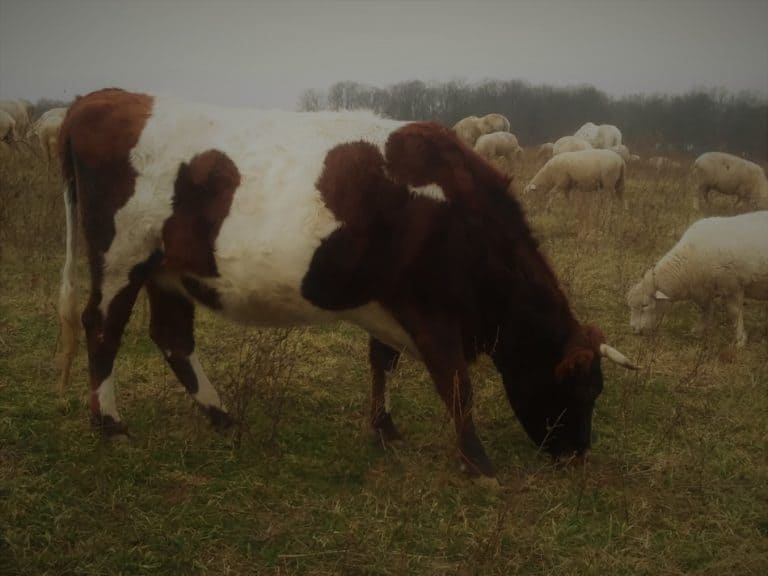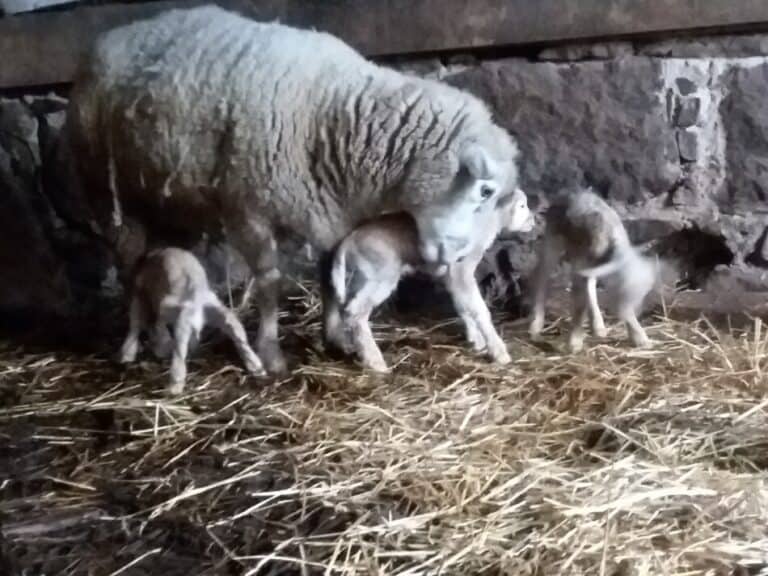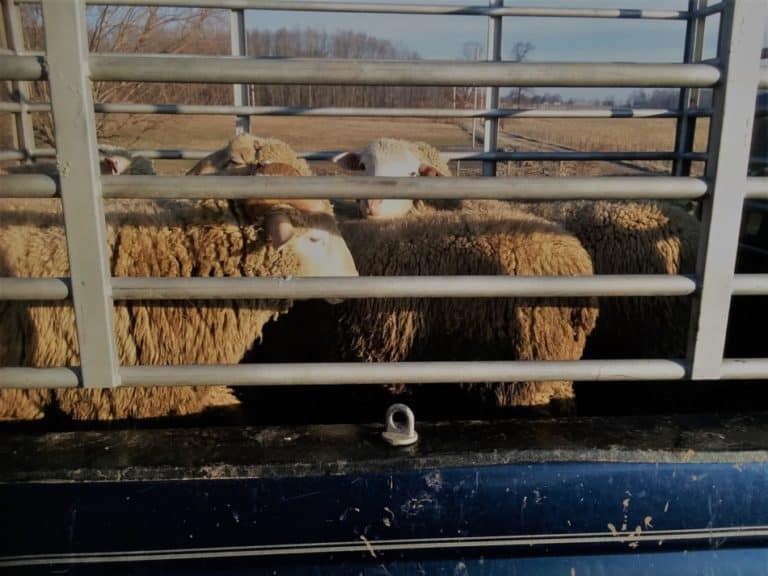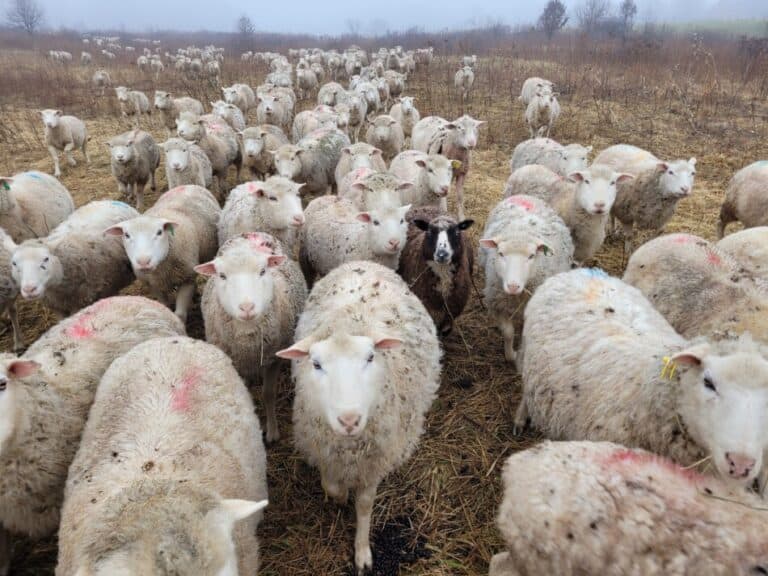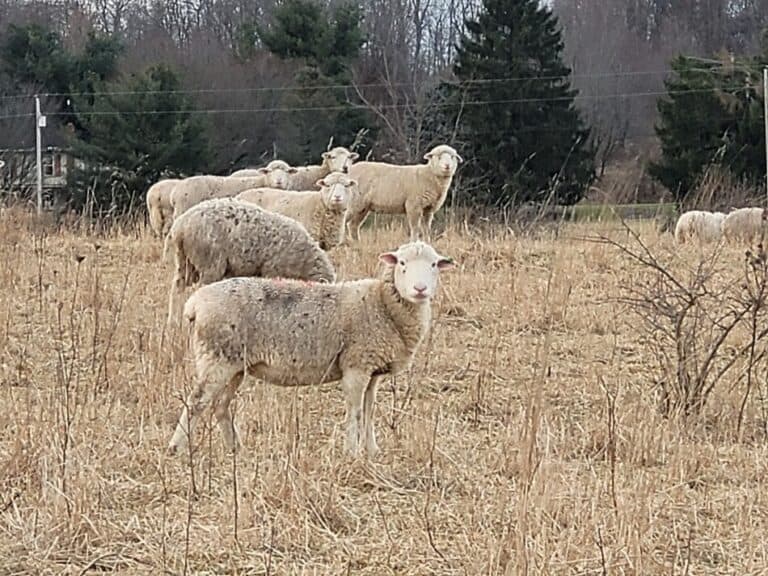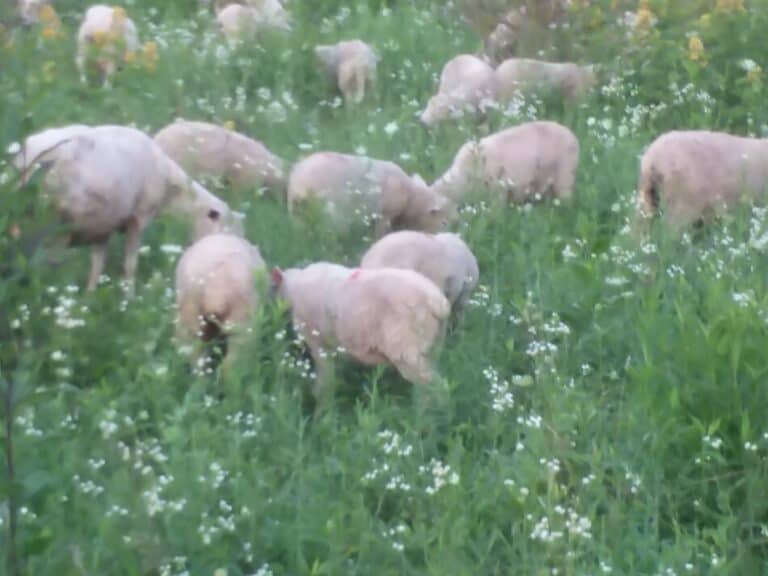How Do You Keep Sheep From Inbreeding?
When you are thinking about which ram to use for your ewes this year, a common concern, especially in smaller flocks, is inbreeding.
What are some options to reduce the chances of inbreeding or, better yet, how do you keep your sheep from inbreeding all together?
You can prevent inbreeding in your sheep by castrating all ram lambs and not keeping any replacement ewe lambs. If you want to keep replacement ewe lambs, castrate all ram lambs and use a new (unrelated) ram each year.
| Prevent inbreeding by: | Pros | Cons |
| castrate all ram lambs | no intact males to keep away from ewes | can not keep back replacement ram lambs |
| sell all lambs | no related replacements | must buy in replacements |
| replace ram each year | little to no chance of inbreeding | costly in time and money |
| separate the flock, use multiple rams | ram can not breed daughters | more effort and cost |
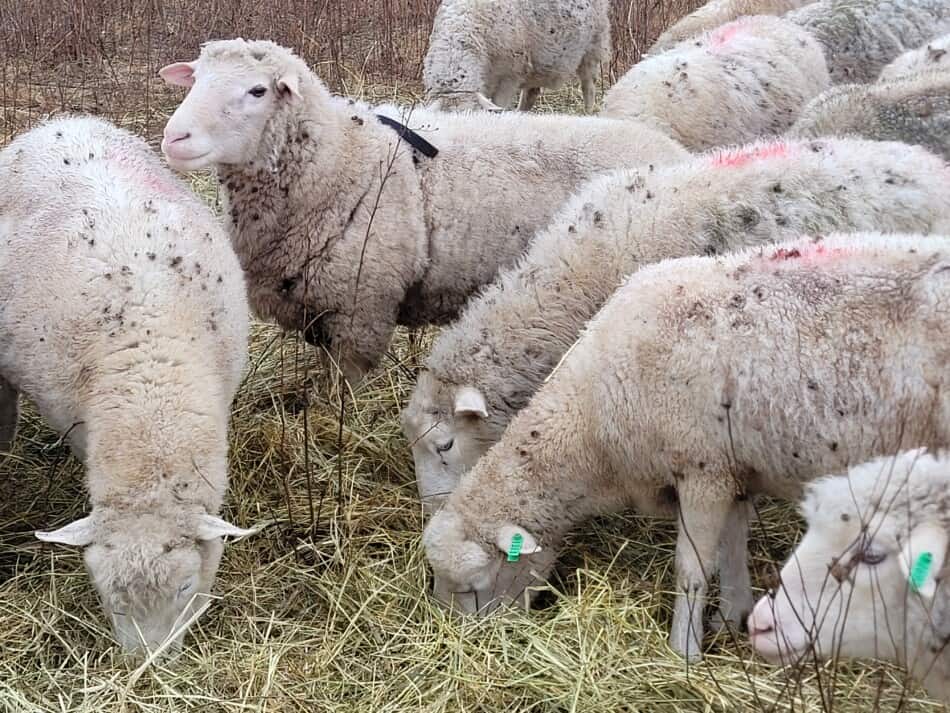
Castrate ram lambs to prevent inbreeding
One of the easiest ways to prevent inbreeding is to castrate all of your ram lambs. Any uncastrated ram lamb is capable of breeding ewes while he is still fairly young, from what we see, by 3-4 months of age!
Can You Keep Rams With Ewes Year Round? gives you a closer look at the timing of your flock’s breeding season, which can catch you off guard and, more than likely, result in unplanned breeding.
If you want to be sure that your ram lambs are not going to be breeding ewes, they must be pulled out of the group early (before sexual maturity for your breed) or castrated.
Overall, castrating ram lambs is one of the simplest ways to keep down the risk of inbreeding in your sheep. If for no other reason than it reduces the number of intact males you need to keep track of.
Castration does not come free, meaning there are risks to the lamb like infection, flystrike and tetanus, not to mention the work of catching the lambs.
But…those risks and effort may be worth it to you in order to better manage the rest of your flock. You have to pick your poison here.
Separate out intact ram lambs
If you do not want to castrate ram lambs, your other option is to separate out intact lambs from the flock. This is called weaning. You can separate all of the lambs or just remove the ram lambs.
This will require completely separate pasture or barn space but it must be done if you do not castrate ram lambs.
This is what we do. We do not castrate any of our ram lambs, they sell as intact market lambs.
On the plus side, we get the advantage of a bit of extra growth from keeping the ram lambs intact and do not have to add another work the sheep day to grab ram lambs for castration.
On the down side, now we have a whole pack of intact males to keep away from the ewes.
Separate out the ram
Do not allow your ram to run with the flock all year. Keep him out any time you do not want to have lambs in 5 months.
Think about the weather in your area and block off the months of the year he needs to be out of the ewe flock.
Aside from lambs at hard to manage times of the year, if you keep the ram in the flock year round, you are also running the risk of inbreeding.
Eventually, his daughters will start coming into heat and if he is in with them, they will be bred. Separate out the ram to keep this from happening.
When Should You Put The Ram In With Your Ewes? helps you figure out the best time to start the breeding season for your flock.
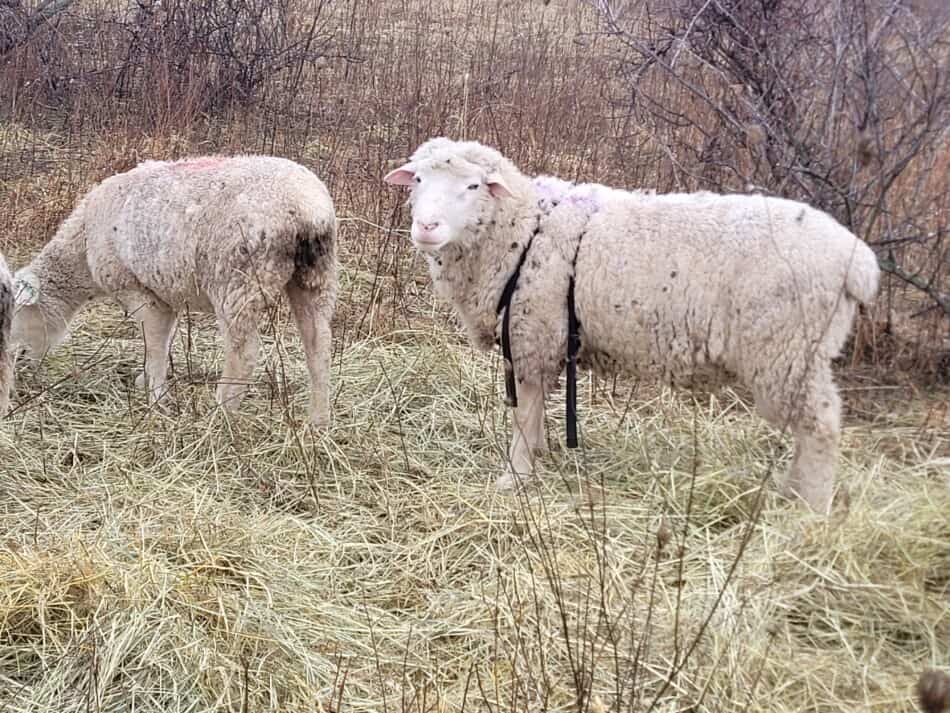
Get new ram each year
An option to prevent all inbreeding, assuming you are castrating ram lambs, is to get a new ram each year. This way it is impossible for the lambs to be inbred, since you are using a completely different ram.
For some folks, this is not a good option for biosecurity reasons and for other folks, the hassle of getting a new ram each year is a pain.
I hear you loud and clear on that one, but as a small producer, you have to make choices as to what matters more. Are you more concerned with the inbreeding or the hassle?
You have to decide what matters more to you and your flock then act accordingly.
If you know a few sheep folks in your area, could you trade rams? If you and other small flock owners are all in the same boat, trading or rotating rams is a potential solution to everyone’s problem.
Split the flock into two groups
For anyone with a few more sheep, you could have two rams, split the flock into two groups and make sure to put the ram with the group that does not contain his daughters.
I realize that this would only get you another year before you need another ram to avoid inbreeding, but if you need two rams anyway, this may be a workable solution.
Don’t worry about inbreeding
A final option is to not worry about inbreeding at all.
If you have a good number of healthy ewes and solid genetics you should be able to choose your best performing lambs, both ewe lambs and ram lambs, to keep as replacements and keep going.
As long as the lambs grow well and you are happy with their performance in the flock, keeping a tighter breeding group is working.
If you see poor performance or lamb problems, this is not working and you need to get some different genetics in for your breeding ram.
We keep back our own replacements
We routinely keep our best lambs, both ram lambs and ewe lambs and use them as breeding stock. These selections are not done willy-nilly, only the best stay, especially with rams.
We know that the ram lambs we choose could breed their moms or eventually sisters, but since they are great growers (as are the gals) we keep them and see how it shakes out.
Our other option is to run more of a hybrid program, to get in outcross or different breed rams each breeding season and not keep any of the lambs for replacements.
Plenty of folks run their sheep operation this way, we choose to keep our own replacements, instead of buying in. Both options have good points and drawbacks that must be considered.
Since some of those replacements are rams, we are also choosing to use some inbreeding, which is fine as long as the results are good.
Inbreeding only becomes a problem when you are working with a very small group or are not keeping track of your results.
To be clear: I did not say keep back that junky slow growing ram lamb and use him next year to save you from buying a good ram!
Only use great ram lambs from your flock if you are keeping your own rams back for breeding.
Buy your first few rams
Also, if you are completely new to sheep, consider buying rams for the first few years until you get a good idea of what you are doing and what sheep work for you.
The first year, you do not have the “eye” to choose well, but with time and some experienced help you’ll learn.
Get an experienced person to help you or plan to buy rams for the first few years and work up to using your own breeding stock.
Other sheep articles you may be interested in:
Breeds Of Easy To Raise Sheep For Beginners
Can You Keep Rams With Ewes Year Round?
Sheep 201 has a great article on Sheep Breeding Systems, which goes over the main points of your breeding options, including the pros and cons of inbreeding.
